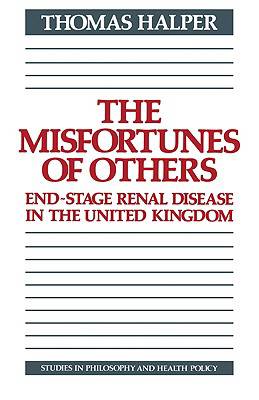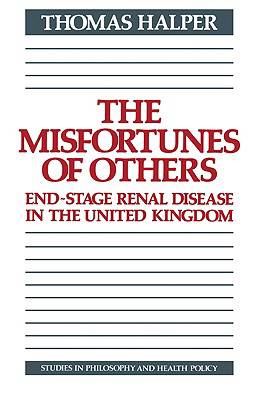
Door een staking bij bpost kan je online bestelling op dit moment iets langer onderweg zijn dan voorzien. Dringend iets nodig? Onze winkels ontvangen jou met open armen!
- Afhalen na 1 uur in een winkel met voorraad
- Gratis thuislevering in België vanaf € 30
- Ruim aanbod met 7 miljoen producten
Door een staking bij bpost kan je online bestelling op dit moment iets langer onderweg zijn dan voorzien. Dringend iets nodig? Onze winkels ontvangen jou met open armen!
- Afhalen na 1 uur in een winkel met voorraad
- Gratis thuislevering in België vanaf € 30
- Ruim aanbod met 7 miljoen producten
Zoeken
€ 60,95
+ 121 punten
Uitvoering
Omschrijving
In this important study, first published in 1989, Thomas Halper examines the policies and practices of the British National Health Services in treating kidney disease. Technological advances since the 1960s mean that end-stage renal disease, an otherwise fatal condition, can usually be treated successfully. In Britain, however, the availability of resources necessary for treatment has been limited in past years and many people have gone untreated. Professor Halper discusses a number of issues, both ethical and political, that arise from having to choose who does and does not get treated. These issues include: the right to health care; the interaction between political demands, government agencies, and public policy; the promise of technology in a society where resources are scarce; and duties owed the individual by the community (and vice versa). The book draws on numerous personal accounts, often moving or unintentionally revealing, and should prove interesting to professionals and students with an interest in philosophy (especially medical ethics), health care, public health, public policy and British politics.
Specificaties
Betrokkenen
- Auteur(s):
- Uitgeverij:
Inhoud
- Aantal bladzijden:
- 232
- Taal:
- Engels
- Reeks:
Eigenschappen
- Productcode (EAN):
- 9780521115728
- Verschijningsdatum:
- 23/07/2009
- Uitvoering:
- Paperback
- Formaat:
- Trade paperback (VS)
- Afmetingen:
- 140 mm x 216 mm
- Gewicht:
- 299 g

Alleen bij Standaard Boekhandel
+ 121 punten op je klantenkaart van Standaard Boekhandel
Beoordelingen
We publiceren alleen reviews die voldoen aan de voorwaarden voor reviews. Bekijk onze voorwaarden voor reviews.











